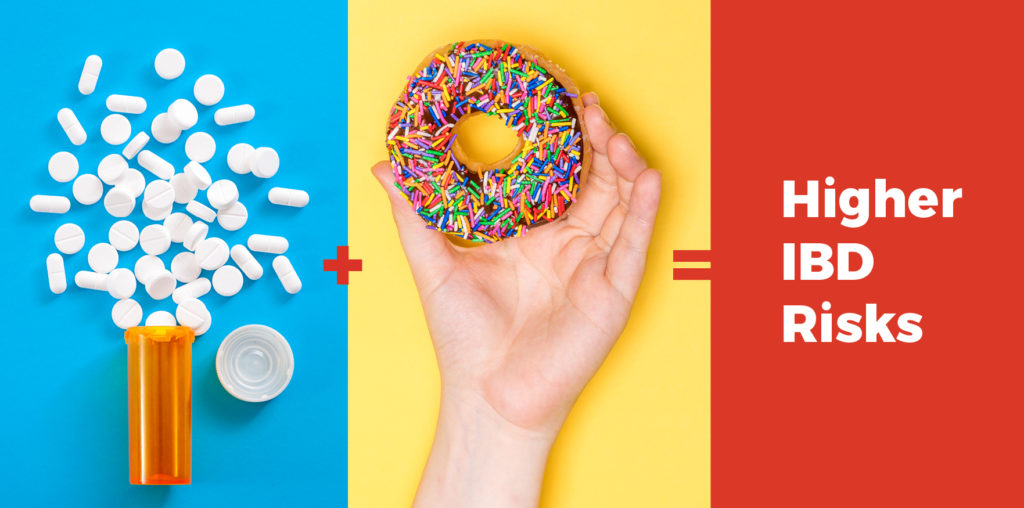Antibiotics + High-Fat Diet = Higher IBD Risks
Whenever we talk about antibiotics, the subject always comes around to the same health challenge…Do you rely on antibiotics to “cure” common health problems that would probably get resolved on their own? And, do you pressure your family physician into prescribing you an antibiotic you may not need?
When you rely on antibiotics too often, they may eventually stop working, especially when you need them to.
So, would you make a different decision about taking an antibiotic if doing so made you much more vulnerable to inflammatory bowel disease (IBD)?
Multiple risk factors
An international team of researchers conducted a two-part study, first analyzing fecal samples of 92 patients, including 49 suffering from irritable bowel syndrome (IBS), to measure fecal calprotectin, a biomarker for intestinal inflammation. Elevated levels of this biomarker, considered a pre-IBD biomarker, were discovered in 19 IBS patients. But that’s not the key takeaway…
Patients who had a recent history of taking antibiotics plus eating a high-fat diet regularly elevated their risks of pre-IBD problems by a factor of 9, compared to those who ate a healthier diet, and had no recent history of antibiotic use.
Considering these risks separately, a patient’s pre-IBD probabilities fell, but not as much as you’d expect, especially with the presence of antibiotics elevating pre-IBD by nearly 4 times compared to high-fat diets alone (nearly 3 times).
Scientists also discovered why antibiotics and high-fat diets create so many problems by analyzing a group of mouse models: Their presence disrupts the work of the mitochondria in the cells that line the intestines to consume oxygen. Those disruptions may evolve into more serious problems in which healthy gut bacteria gets replaced by more harmful bacteria, leading to inflammation and possible pre-IBD symptoms.
So what can you do to stay healthy and possibly stay out of the way of IBD?
It’s all about moderation
This study really drives home a very important point: The foods you eat and the medications you take — especially antibiotics — can work for or against you. Moderation is the critical take-home message here. Eating some fat is good and important, and indulging on occasion is fine, but not all the time!
The same applies to antibiotics. If your family doctor recommends an antibiotic, be sure to ask lots of questions about how and when to take them. (Don’t skip doses or stop taking them early if you feel better.)
For all of the good antibiotics can do, they also deplete the beneficial bacteria in your gut that keeps your immune system strong. When you need to take an antibiotic and protect your gut health, be sure to take a probiotic two hours before to give those beneficial bacteria a head start.
Read our latest advisory on how to get the best out of taking a probiotic here!
When you’re looking for a probiotic, you should strongly consider one formulated with multiple strains of beneficial bacteria that provide proven results like those from the Lactobacillus and Bifidobacterium families.
And, when you’re reading product labels, be sure to look for a prebiotic, the guys that do the dirty work behind the scenes by feeding the good bacteria living in your gut. Some probiotics don’t have them!
Fortunately, our multi-strain probiotic, EndoMune Advanced Probiotic, is uniquely fortified with 10 strains of beneficial bacteria, plus a proven prebiotic (FOS) to protect your gut.
References
Antibiotics + High-Fat Diet = Higher IBD Risks Read More »


